Tech-voc school looks to help spur the economy beyond the pandemic
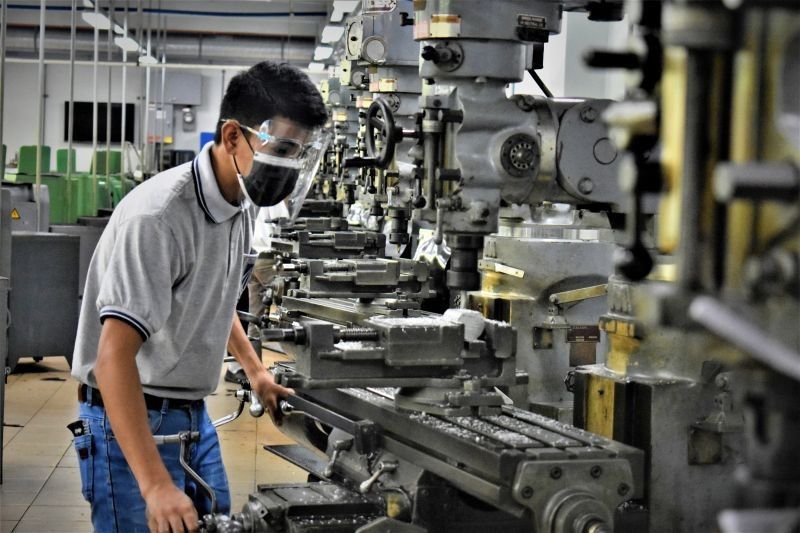
MANILA, Philippines — “The ability of individuals to find employment opportunities and work is a key component of economic freedom,” the Washington D.C.-based Heritage Foundation said in its report, released last March. “Economic freedom brings greater prosperity… healthier societies, cleaner environments, greater per capita wealth, human development, democracy and poverty elimination.”
U.S.-based conservative think tank Heritage Foundation’s 2021 Index of Economic Freedom placed the Philippines 73rd out of 178 markets, while the 2020 Human Freedom Index by the Cato Institute in the U.S. and Fraser Institute in Canada put it at 54th out of 162 countries in terms of economic freedom.
Compounding the picture is the economic crisis spawned by the pandemic. The statistics authority on reported that the country recorded an 8.1% unemployment rate in July and a 14.7% underemployment rate. That translates to about 11.5 million workers jobless or seeking additional income to make ends meet.
That concern is at the core of one technical-vocational school adapting the German Dual Training System in the local scene. From its inception, Dualtech Training Center had as its vision to help alleviate poverty in the country through the education and training of workers for industry.
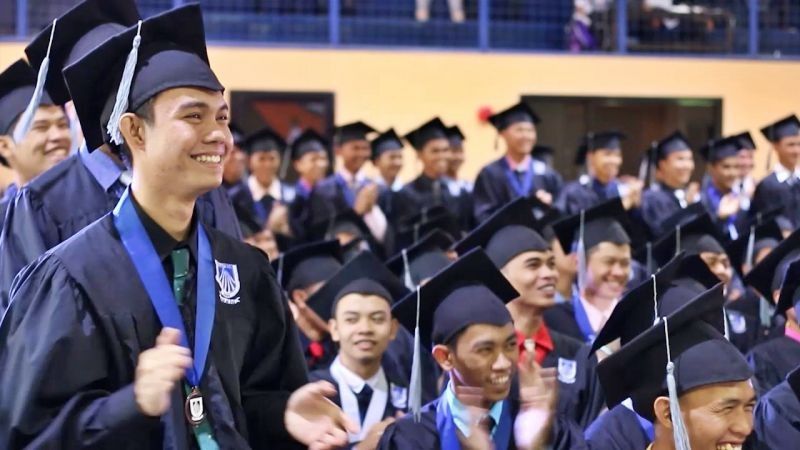
Economist Bernardo Villegas, now part of Dualtech board of trustees, said that “in the early ‘70s some top executives in industry taking an executive education program at the Center for Research and Communication saw that one of the more important contributions they could make to society was to train out-of-school youth and children of poor families so that they can be gainfully employed, especially in the area of blue collar work.”
This dream was realized in 1982 when engineers—all members of Catholic prelature Opus Dei—and their colleagues in the industry established Dualtech. It started small in rented facilities in Makati. In 1991 the school moved to its definitive campus in Canlubang, south of Metro Manila.
The Dualtech system melds classroom sessions with training in factories of partner-companies who provide scholarships, as well as donations and grants. This classroom-training framework addresses a decades-old need in the country’s education system, which is to produce graduates with the skills set that are needed by industry.
In the Dualtech scheme, each needs just P70,000 to complete a two-year course, which includes accommodations. That is about the price of a gaming laptop.
A typical course runs for 24 months. A students spends the first six months in school. In the succeeding 18 months he spends a day in school and five days in the factory weekly. On top of skills training, Dualtech has a distinct program to develop the students’ human and social values.
Students are either high-school graduates who make the grade, industrial workers sent by their companies to upgrade their skills, or supervisors who want to hone their training and mentoring skills.
The student-trainees from high school are all scholars. In the Dualtech scheme, each needs just P70,000 to complete a two-year course, which includes accommodations. That is about the price of a gaming laptop. Graduates receive a diploma in Electromechanics and find immediate employment.
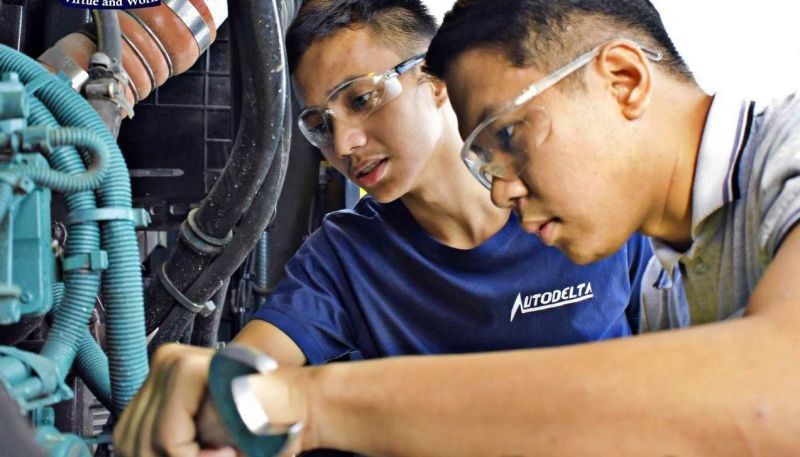
Dualtech Executive Director Jerry Muhi noted that, despite the pandemic, “there is a consistently high demand from companies who eventually absorb our in-plant trainees as regular employees.”
Maria Shiela Lopez, chief human resource officer of Autodelta Parts and Services shared that “it’s not just the skills set, it’s the values formation that these students have. We are happy when it comes to the attitude, the behavior, and also the resilience of these kids.”
Taking on pandemic challenges
Muhi said despite the community quarantine limitations, the school was achieved a zero lay-off policy for its staff. “We were affected, but I think not as bad as other schools. We were able to sustain all our 32 employees. No one was laid off. This was mandated by our board.”
The initial stages of the community lockdowns reduced the trainees’ population to about 100 from a regular complement of 1,200-1,300, “but now we’re back to nearly 900 trainees and around 100 partner training companies,” Muhi said.
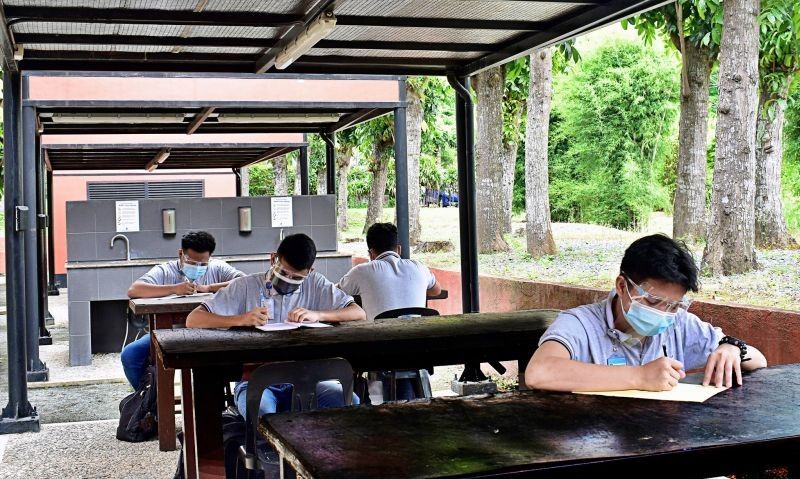
TESDA, or the Technical Education and Skills Development Authority, which has regulatory oversight over Dualtech, allowed the school to resume on-site classes in November last year.
“With adjustments in pedagogy, adjustments in physical setup, and adjustments in the working arrangements with our partner-companies, we managed to continue our programs,” Muhi narrated. “Everyone makes it a point to comply with IATF (Inter-Agency Task Force for the Management of Emerging Infectious Diseases) regulations, and things work out.”
Dualtech continues with online classes, which it started in March 2020. “What we did was to allow the students full access to our database of resources, which we have built through the years,” Muhi said. “Think of it as an electronic library. There, students get to do research and study on their own.”
Throughout the lockdown period, Dualtech supported its stranded students. Those living in the vicinity of the school were given meals. Relief packs were delivered to those living farther away. The rest were given cash assistance. This humanitarian operation cost the school some P9 million, sourced from individual and corporate donors.
“Alumni donated as much as P1 million for this cause,” Dualtech President Arnolfo Morfe noted. Some 600 graduates wanted to be “kuya" to the stranded Dualtech students who came from areas like Agusan del Sur, Bataan, the Bicol provinces, Bohol and Basilan.
Reynaldo Mendoza was among those “kuyas”. He now works in a food processing company in South Korea. “I saw the social media post of Dualtech alumni seeking help for the students who were still on the way to shaping their future,” he explained. “My message to the scholars now is that they are in the right place to have a good future, and of course they will always have Dualtech alumni by their side.”
The time is now
The government and private sectors forecast that economic conditions will return to pre-pandemic levels in the third quarter of 2022. The Dualtech partner-companies are now gearing up for normalization of operations. The time is now for the school to grow its student population.
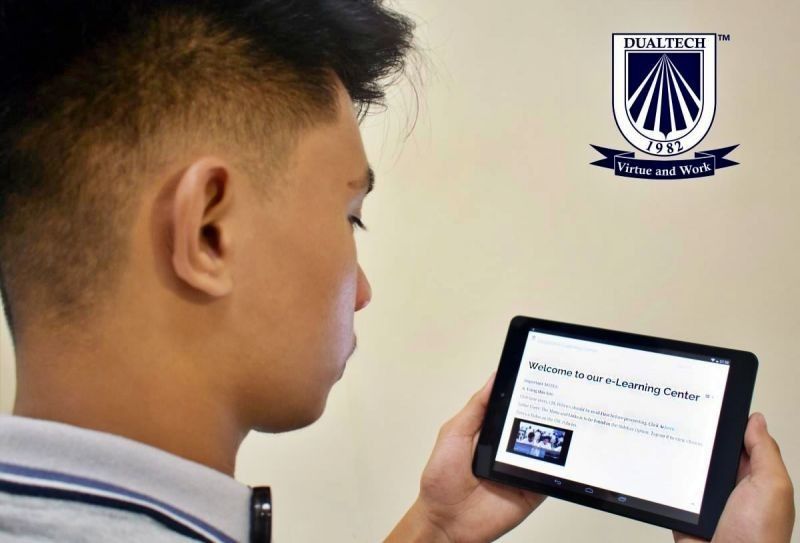
“We look forward to resuming our trips to the different provinces to raise awareness of Dualtech and its programs,” Muhi said.
He added: “We have many industrial zones and parks all over the country, and wherever they are located, ideally Dualtech needs to be there as industry partners."
Dualtech has more than 100 partner-companies where the students are deployed for their on-the-job training. Among them are: Suzuki, ICTSI, Unilab, Mondel?z, Del Monte, Enchanted Kingdom, Toyota, Nutri-Asia and others in the manufacturing and servicing industries.
“It’s still not enough. We need more,” Muhi said.



















